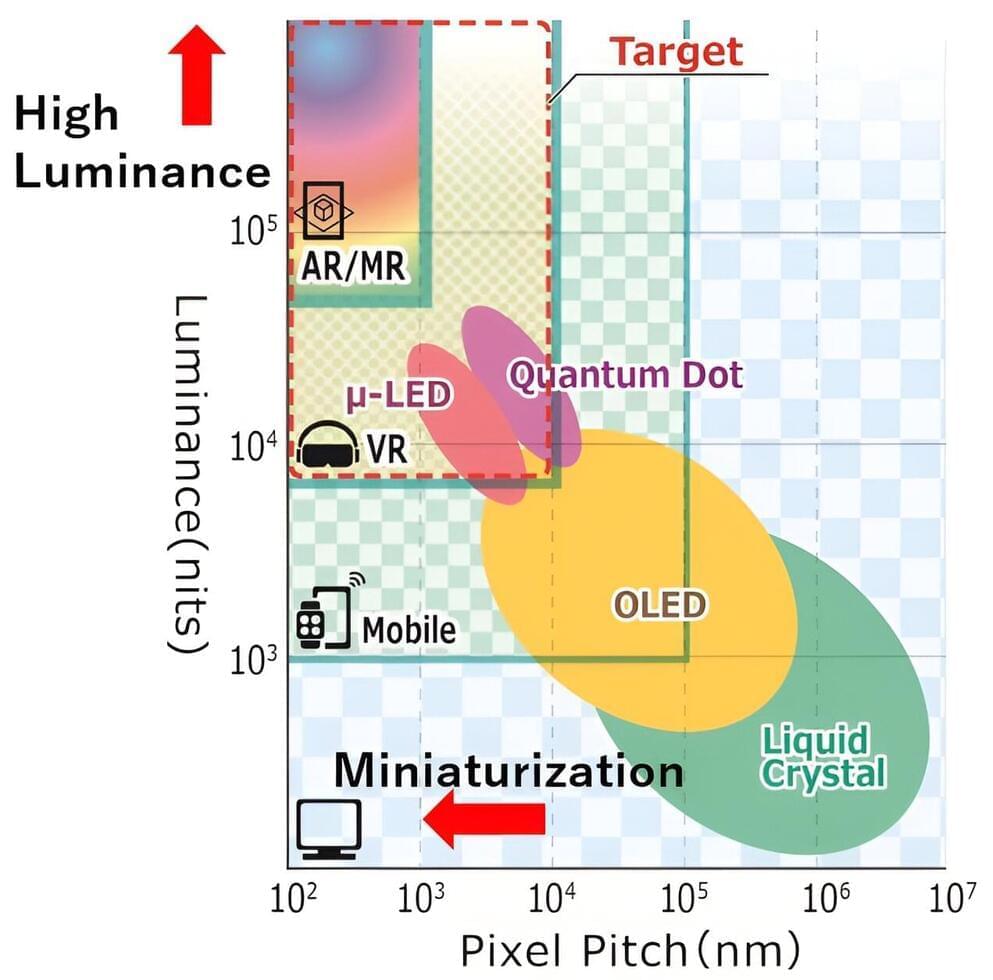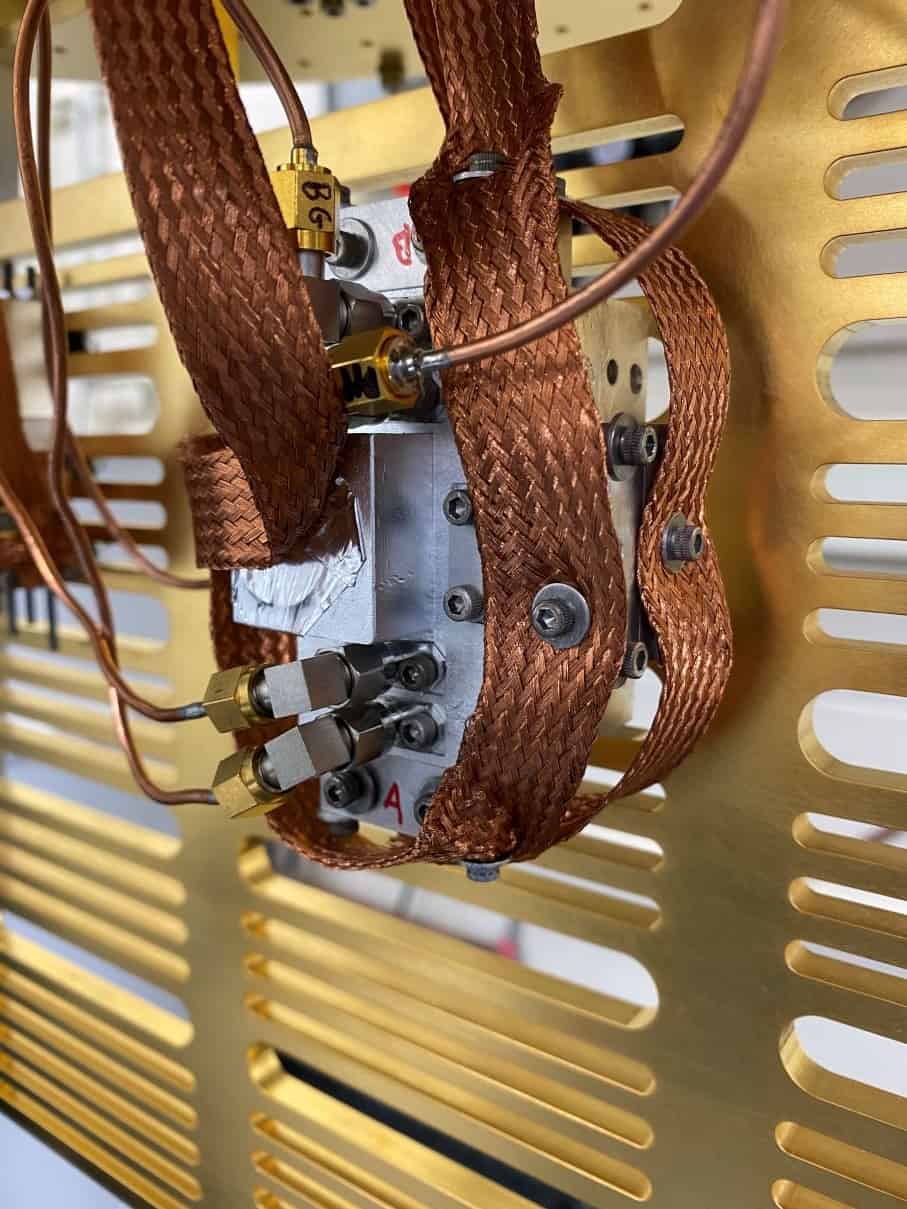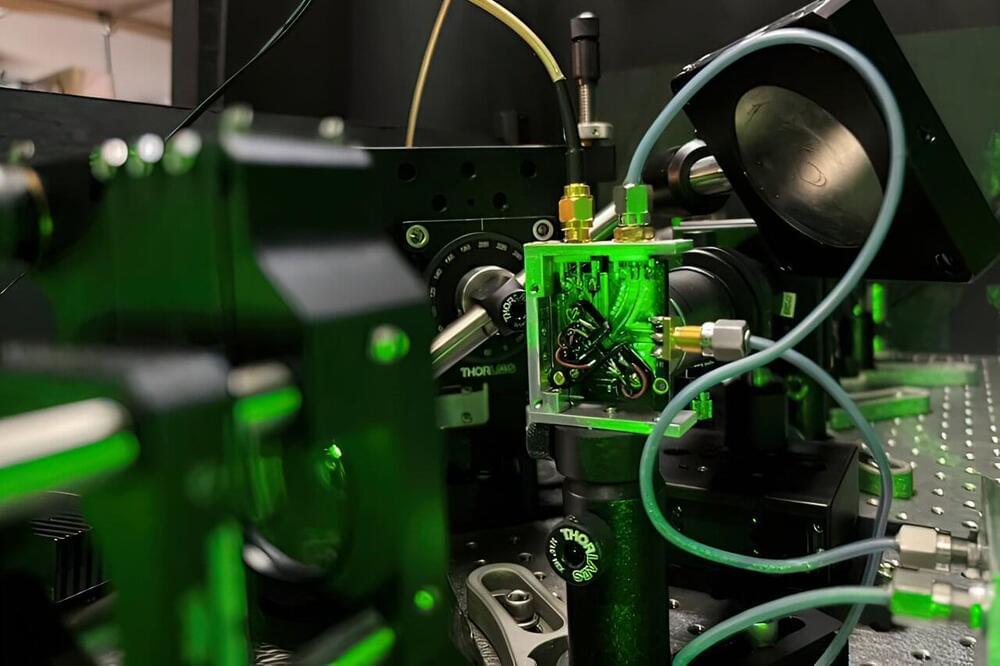
From pterodactyls flying overhead in a game to virtually applying cosmetics prior to making a purchase, augmented reality and other immersive technologies are transforming how we play, observe, and learn. Cheap and ultra-small light-emitting diodes (LEDs) that enable full-color imaging at high resolution would help immersive displays reach their full potential, but are not currently available.
Now, in a study recently published in Applied Physics Express, a team led by researchers at Meijo University and King Abdullah University of Science and Technology (KAUST) has successfully developed such LEDs. The simplicity of their fabrication, via presently available manufacturing methods, means they could be readily incorporated into modern metaverse applications.
Why is the development of improved LEDs necessary for immersive reality? The realism of augmented and virtual reality depends in part on resolution, detail, and color breadth. For example, all colors must be evident and distinguishable from one another. Gallium indium nitride semiconductors are versatile materials for LEDs that meet all of these requirements.

















